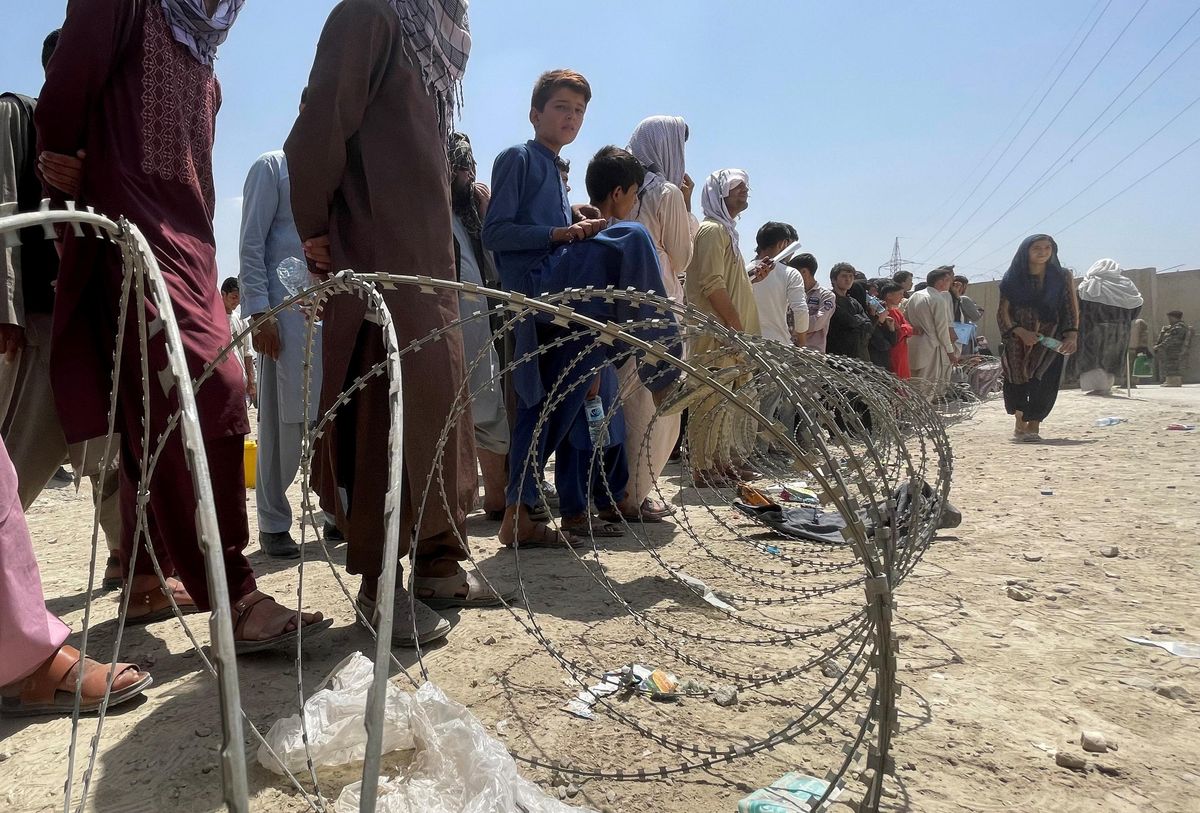While much of the world watches the tragic and deadly chaos around Kabul's airport, a potentially much bigger migration crisis has already begun, and will only get worse in the coming weeks and months: huge numbers of Afghans desperately trying to flee the country as refugees or asylum-seekers.
How many refugees are we talking about? More than half a million Afghans had already fled violence and instability in their country this year alone, even before the Taliban swept back to power a week ago. But an equal number of new refugees could very well hit the road in the next few months, despite Taliban efforts to stop people from leaving.
Many more Afghans now want to get out either because they fear reprisals for collaborating with US forces — Taliban amnesty offer notwithstanding — or because of the new regime's awful record on human rights, especially for women and girls.
But where will they go? Good question. Most will likely try to head to Europe, but few countries anywhere along that route seem willing to take them in. Here are three examples on the way.
Border country: Iran. Iran — which offers the most direct path for Afghans trying to reach Europe — currently hosts 780,000 Afghan refugees, second only to Pakistan, along with about two million undocumented Afghans. Tehran is worried that the Taliban, who are Sunni extremists, may intensify a long history of persecution of Afghanistan's Shia minorities, pushing even more refugees to the Iranian border.
But the last thing new President Ebrahim Raisi wants right now is a large refugee influx that could inflame social tensions at a time when public discontent against the regime is running high, the economy is crippled by US sanctions, and COVID is still raging. That means he'd probably rather not antagonize the Taliban (who almost went to war with the Iranians in 1998) by giving asylum to fleeing Afghans. So far, Iran has set up tents for Afghan refugees in three border provinces, but has no plans to do much more for them.
Transit country: Turkey. If Afghans are able to make the perilous journey across Iran, they'll arrive at the border with Turkey, where authorities are already setting up barriers to keep out all migrants, including Afghans. Turkey already hosts 3.6 million Syrian refugees under a six billion euro ($7.04 billion) deal with the EU, but the Turks insist their country won't become a staging point for Europe-bound Afghans — no matter how much the Europeans are willing to pay this time.
Still, smugglers will always find ways to get people in. The problem is, where do they go from there?
Not here, says neighbor, bitter enemy, and EU member state Greece. The Greeks, who are also beefing up their border security, consider Turkey to be a "safer place" for Afghan refugees, mainly because almost 118,000 are already there.
Destination country: Germany. Germany is by far the European country that hosts the most Afghan refugees, with 181,000. But Chancellor Angela Merkel, who championed the EU's 2015-2016 highly controversial effort to take in more than a million mostly Syrian asylum-seekers, knows there's zero appetite in Germany — and elsewhere in the bloc — to do the same with Afghans at the moment. What's more, Merkel is stepping down after next month's federal elections, a vote in which immigration has already become a prickly campaign issue.
The main German political parties, including Merkel's own CDU/CSU coalition, all have a similar message: we empathize with the plight of Afghans fleeing the thuggish Taliban, so we won't deport you right now, but please don't come here unless the entire EU agrees to share the burden (which seems very unlikely given most individual EU member state commitments so far).
This all raises the question: What happens if possibly millions of people who fear persecution get trapped inside their own country? They will probably join the ranks of the 3.5 million vulnerable Afghans who are already internally displaced. After that, no one knows.
"The inability to seek safety could be a matter of life and death," Kathryn Mahoney, global spokesperson at the UN High Commission for Refugees, told GZERO Media. "As of today, the vast majority of those who may be in danger have no clear way out."
- The Graphic Truth: How opium kept the Taliban going - GZERO Media ›
- What does a Taliban takeover of Afghanistan actually mean ... ›
- The Taliban are super rich. Is it enough to run a country? - GZERO ... ›
- Afghan reality check - GZERO Media ›
- Afghanistan's neighbors on edge - GZERO Media ›
- Afghan carnage - GZERO Media ›
- Europe fears Afghan refugees will cause a political crisis - GZERO Media ›
- The Graphic Truth: Opium keeps the Taliban going - GZERO Media ›
- A US veteran on the “betrayal” of leaving Afghans behind - GZERO Media ›






